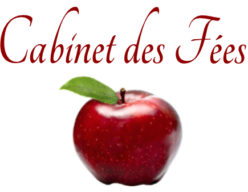In these last few days of April – which is National Poetry Month in the United States – I would like to share with you some fine poetry by some enchanting poets. To begin with, we have a poem by Campbell award-nominated Seanan McGuire featuring the fearsomely strange figure of Baba Yaga. But first, allow me to introduce the poet:
A folklore maven and woman of the beautiful weird, Seanan burst onto the urban fantasy scene last year with Rosemary and Rue, the first book in her October Daye series. As her first series proliferates (Rosemary and Rue was recently joined by A Local Habitation, with An Artificial Night forthcoming in September), Seanan is also writing a year-long American folkpunk piece entitled Sparrow Hill Road at The Edge of Propinquity and has just published Feed, the first part of a zombie politico-thriller trilogy, under the pseudonym Mira Grant. In addition to this, she is a well-known filker, a semi-regular cartoonist, and still manages to take daily walks. Most of us are quite sure that Seanan never actually sleeps and has, perhaps, secretly perfected human cloning.

“Baba Yaga Said” by Seanan McGuire
“There’s nothing mystic in this magic,”
Baba Yaga said, “nothing so strange
as you would make it out to be.
This world is wide and wild
and full of wonders, and in your
yearning to see fireworks,
you overlook the glory
in a dandelion, the spectacle
trapped inside a butterfly.”
“There’s nothing modern in this story,”
Baba Yaga said, “nothing ancient,
nothing old or new or anything except
eternal — we are the wind, the waves,
the water whispering stories
to the dolphins and the dreaming whales.
We are everything. We are anything.
Remember that, my Vassilisa, and
I will set you free.”
“There’s nothing gained if nothing’s ventured,”
Baba Yaga said, and gave me back my heart,
and opened wide the door,
and let me go.
Originally, I planned to share a short reflection on this poem. Instead, I think you should breathe deeply and read it once again. Then go outside, close your eyes, and let these words echo through your memory and down into your fingertips. At last, open your eyes, and mark what first you see. Remember this awareness with gladsome fierceness.
Before you do, though, read on! Seanan graciously spared some of her time to talk with me about getting in trouble for writing sonnets, the restorative properties of structured poetry, and the brilliance of filking.
Deborah: You were recently published in the Spring edition of Goblin Fruit, where I read that you’ve been writing poetry since the age of six. You also mentioned being sent to the principal’s office for your first composed sonnet! Could you elaborate?
Seanan: One of my aunts decided to test a theory she had, about kids learning that things are difficult, and treating them as difficult, rather than actually approaching the things on their own merits. So she sat me down when I was getting ready to start school and told me that I would be expected to write simple poetry–and that since I could count to ten and rhyme “cat” with “hat,” the Shakespearean sonnet was the simplest form of poem there was. I wrote a lot of sonnets my first few years in school. My kindergarten teacher was convinced that I’d stolen the sonnet I turned in, even though it mentioned my cat by name. Accusing six-year-olds of plagiarism was apparently her hobby.
Deborah: Speaking of your appearance in Goblin Fruit: “Ever After Variations,” besides being a compelling reflection on fairy tales and the what-comes-after, is an excellent vilanelle. How did your interest in formal structure develop?
Seanan: I think it started with the sonnets. But from there… I just love the challenge of it. Here’s this form, and you have to make the story you’re telling fit inside its limitations. I really love structured poetry. It makes everything better.
Deborah: You make it sound as if you write structured poetry as a soothing activity! …do you? And which structured form do you find most restful? Most intimidating?
Seanan: I do! Structured poetry is like poetry with a safety net. You can fall, but you can’t fall too far out of control. I probably find sonnets to be the most restful, and virelais to be the most stressful. I refuse to write virelai ancens. Life is too short for that sort of suffering.
Deborah: Besides being a prolific poet and author, you are also a song-writer with three albums currently available through your website and a third (Wicked Girls) in the works. Do you find yourself enjoying song-writing more than poetry? And which comes first for you: the lyrics or the feel for the music?
Seanan: Songwriting is poetry! It’s just a very specific form of structure. I usually get the words and the music at the same time, when it’s going to be a song; if I don’t get ambushed with music, I know it’s a poem that’s meant for reading and reciting, instead of singing.
Deborah: I’ve noticed from your lyrics (and knowing you!) that you’re inspired by established SFF worlds and horror franchises as much as fairy tales and science. When did you discover filking? How did you get into it, and how would you recommend a novice approach the world of filking today?
Seanan: Filk is a wonderful, huge, welcoming community, and it’s easy to get involved. We have conventions all over the United States, as well as in Germany and the United Kingdom; there are online communities, and a lot of amazing music available for purchase. I’d recommend dropping by any one of the filk forums and saying “my interests are X, can you recommend…?”, and then see where that goes.
I got involved in filk in high school, through about eight different avenues at the same time. I have never looked back.
Deborah: What’s the origin story behind “Baba Yaga Said”?
Seanan: I think that Baba Yaga makes a very good growth archetype, used properly, and I wanted to comment on the way people look so hard for magic that they miss the magic that’s already there. You get so busy searching the sky for a phoenix that you forget to count the crows.
You can find out more about Seanan McGuire’s work and discover a truly awesome amount of free content at her website.
